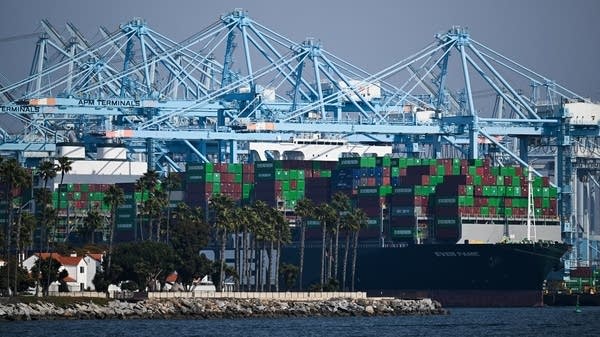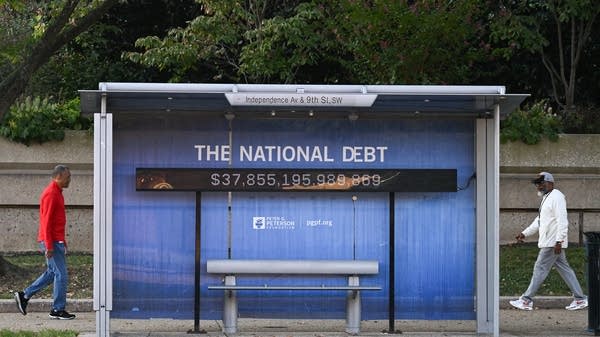The “Big Beautiful Bill” will cost more money than it would bring in, CBO projects
The Congressional Budget Office estimated that if the House bill were to pass as written, the deficit would increase by almost $3 trillion.

That big GOP tax and spending bill that's making its way through the Senate right now — after it barely passed the House — has been getting some new scrutiny from the Congressional Budget Office.
The nonpartisan organization reported yesterday that, if the bill passes as it currently stands, the interest payments the government makes on all of the money it borrows would “more than offset the primary deficit reductions driven by increases in economic output.”
In other words? The CBO’s saying sure, the bill could well lead to economic growth. It would mean more tax revenue for Washington — $124 billion worth, according to the CBO.
But it would also force the government to use a lot more of the money it brings in to make interest payments — more than $400 billion more.
The CBO estimated that if the House bill were to pass as written, the deficit would increase by almost $3 trillion.
“That means that Treasury would have to issue more debt to finance it,” said Ernie Tedeschi, director of economics at Yale University’s Budget Lab.
“If the investor thinks there are going to be a whole lot more bonds in the future, because deficits are higher, they’re going to demand higher interest rates in compensation for that.”
Those are long-term interest rates — on five, 10 or 30-year government bonds. When those rates rise, borrowing becomes more expensive for consumers and businesses.
Tedeschi ran the numbers and found that if long-term rates do go up, rates on auto loans, business loans, and mortgages would go up too.
Take a 30-year mortgage on a house sold at last year’s median price: “Higher interest rates would raise annual mortgage payments on that house by a thousand dollars as a result of this bill,” Tedeschi said. “And that happens after five years.”
That could be a concern for the Federal Reserve.
Winnie Cisar, global head of strategy for CreditSights, said if long-term interest rates get too high, “That means that, more broadly, there would some sort of slowdown, that could then bleed into the labor market, and result in layoffs, or a rising unemployment rate.”
Keeping unemployment low is one half of the Fed’s dual mandate.
Jay Bryson, chief economist at Wells Fargo, said if unemployment picks up, the central bank might be forced to act.
“The Fed would start to cut short-term interest rates, to give some stimulus to the economy.”
But Bryson added: that may not be necessary. Just because borrowing costs go up doesn’t automatically mean more unemployment.
“If all that’s happening is long-term rates are going up, but it’s not really having a material effect on the Fed’s two main policy objectives, then the Fed’s not really going to react to that,” Bryson said.
Because keeping a lid on mortgage rates or the government’s borrowing costs? That’s not the Fed’s job.













